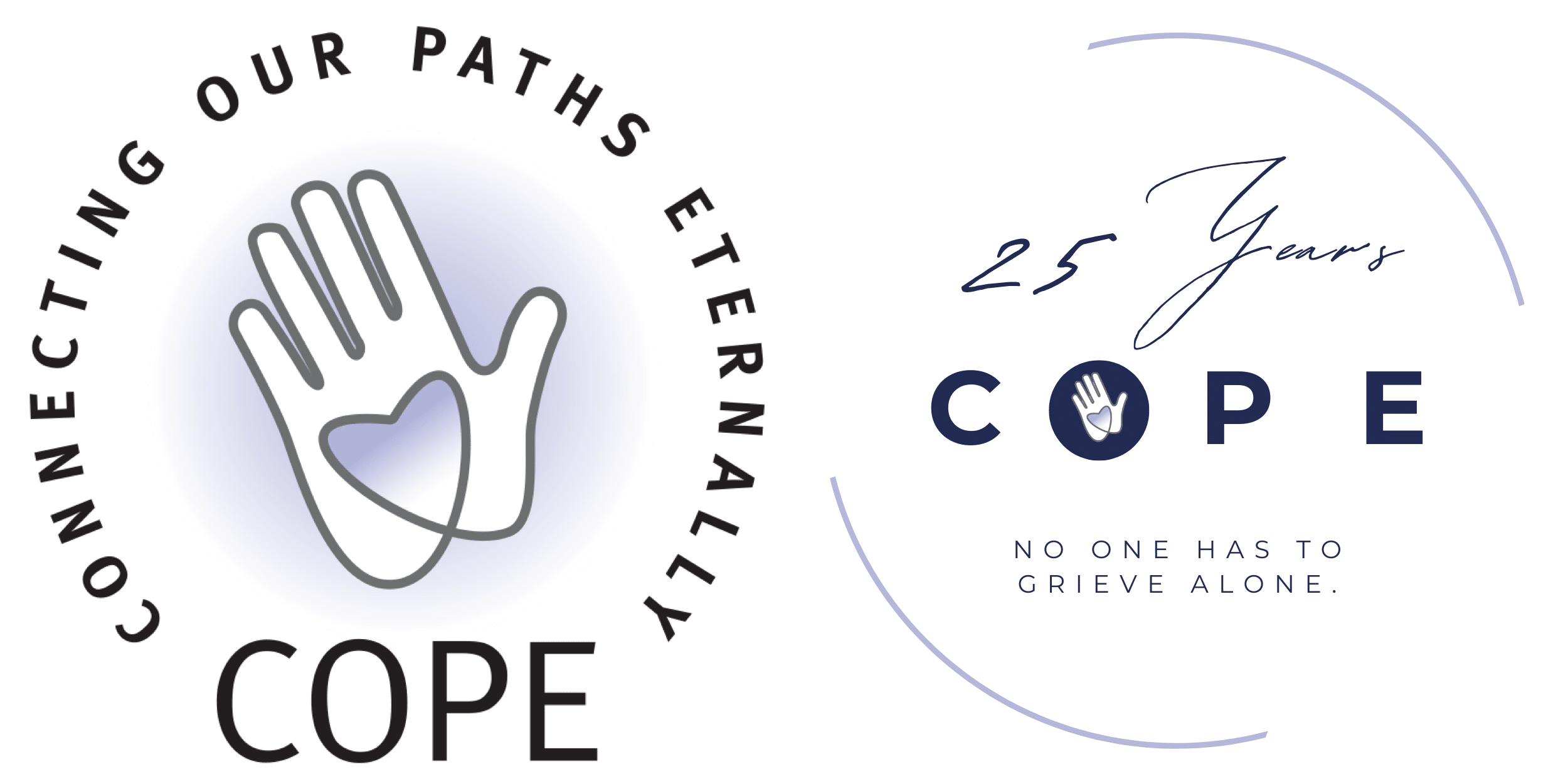COPE Healing Tip of the Month From COPE Clinical Director Amy Olshever, PhD, LCSW
How Do We Understand Grief?
What stage am I in? How long will this last? Why can’t I move to a better stage? When will I feel better? These are some of the many questions I have been asked by people who are grieving the loss of a loved one. To answer these questions we need a way to understand grief and the grieving process. Many of us first understood grief through Elisabeth Kubler-Ross’s five stages: Denial, Anger, Negotiation, Depression and Acceptance. Kubler-Ross was a great and wonderful pioneer in the world of grief and loss for bringing this difficult conversation into the open. But even she realized pretty early on that a stage theory does not really work to describe the messy and unique experiences that people really go through.
There are several newer and more useful models to understand grief. One of these is William Worden’s TEAR Model. Worden suggests that there are four tasks we need to navigate through in the process of mourning. I like this model because it is flexible–you can adapt it to describe your individual situation, and it encourages you to take an active approach to your grieving process. It allows for the likely possibility that you may need to move backwards and forwards in the tasks. And it assumes that these tasks do not necessarily need to occur in the order that they are described here. However, as you will see, there is some natural order in that completion of some tasks presupposes completion of another task. Also, during the course of your lifetime some or all of these tasks may need to be revisited.
This month we focus on Task #1: To accept the reality of the loss
This task involves coming to terms with the end of the person’s life. It is not uncommon to experience shock or disbelief following a loss, or feel as if you are living in a dream or surreal reality. Your mind can easily pretend that the death didn’t really happen in an attempt to avoid the pain. You might continually expect your loved one to walk through the door, or be on the other end of the phone when it rings. You might keep telling yourself that this has to be a nightmare that you’ll soon wake up from.
To many, “acceptance” often implies agreement or approval. To others, “acceptance” may imply severing ties to the past. Acceptance doesn’t have to mean any of this. Rather, in the case of losing a loved one, acceptance may simply mark the moment we are ready to begin our journey of healing. Engaging in rituals such as funerals or writing a letter to the person who has died, or talking to a therapist or a close friend or family member are helpful ways to start to come to terms with the reality of the situation.
Next month we will look at Task #2…

